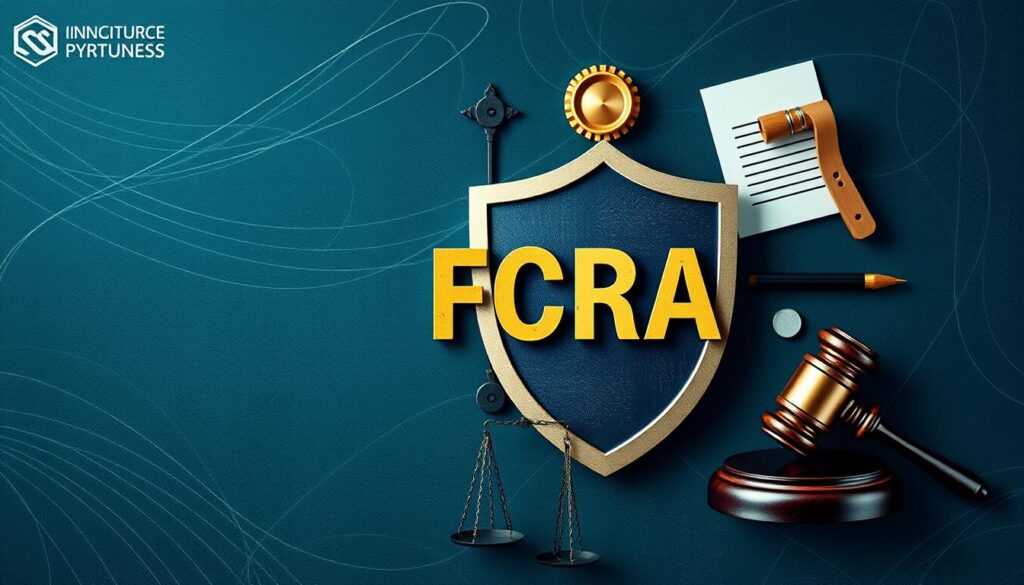Too many credit inquiries can hurt your credit score. This makes it harder to reach your money goals. Our guide gives you a multiple inquiry removal letter PDF to tackle this problem.
Learn how to dispute and remove unwanted inquiries effectively. Protect your financial health with ease. Navigate credit reporting agencies like a pro.
Key Takeaways
- Understand the impact of multiple credit inquiries on your credit score
- Learn the differences between hard and soft credit inquiries
- Discover the reasons behind multiple credit inquiries and how to address them
- Acquire a template for a multiple inquiry removal letter PDF to dispute unwanted inquiries
- Explore your legal rights and protections under the Fair Credit Reporting Act (FCRA)
Understanding Multiple Credit Inquiries
Multiple credit inquiries can significantly impact your credit profile. They affect your credit score and influence your ability to get loans and credit cards. It’s important to understand how these inquiries work.
Impact on Credit Scores
Hard inquiries can temporarily lower your credit score. Each one may reduce your score by a few points. Multiple hard inquiries can have a longer-lasting effect on your creditworthiness.
The impact of these inquiries usually lessens over time. However, accumulating too many can harm your credit score more significantly.
Types of Inquiries: Hard and Soft
- Hard Inquiries – These occur when you apply for new credit. They’re visible to potential lenders and can negatively impact your credit score.
- Soft Inquiries – These happen for reasons other than new credit applications. They don’t affect your credit score and aren’t visible to lenders.
Knowing the difference between hard and soft inquiries is key. It helps you manage your credit profile effectively.
Regular monitoring of your credit report is crucial. It allows you to address any issues with multiple credit inquiries promptly.
“Monitoring your credit report and addressing any multiple credit inquiries can help protect your credit score and overall financial well-being.”
Reasons for Multiple Credit Inquiries
Multiple credit inquiries on your report can be worrying. They often happen when you apply for new credit. Lenders check your credit to assess your financial health.
This is normal and shouldn’t harm your score much. However, it’s best to space out credit applications. This helps minimize the impact on your credit score.
Identity theft can cause unwanted inquiries. Thieves may use your info to apply for credit. This is serious and needs quick action to protect your finances.
Credit monitoring can lead to multiple inquiries too. These services check your credit regularly. They look for changes and unusual activity.
These are soft inquiries and don’t affect your score. But they still show up on your report.
| Reason | Impact on Credit Score |
|---|---|
| Credit Application Process | Minimal impact if spaced out |
| Identity Theft | Significant negative impact |
| Credit Monitoring | No impact (soft inquiries) |
Knowing why multiple inquiries happen helps you address them. You can take steps to protect your credit score. This will help maintain your overall creditworthiness.

The Importance of Removing Multiple Inquiries
A healthy credit score is vital for your financial well-being. Removing multiple inquiries from your credit report can boost your score. These inquiries can harm your chances of getting good loan terms or credit card rates.
Taking action to remove unnecessary inquiries protects your credit report’s accuracy. This can lead to better credit access and interest rates. Ultimately, it helps build a stronger financial future for you.
Preventing Negative Impact on Credit Scores
Credit inquiries are recorded on your report and can lower your score. Soft inquiries, like pre-approvals, don’t usually affect your score. However, hard inquiries from lenders can have a bigger impact.
- Hard inquiries happen when you apply for new credit. They stay on your report for up to two years. These can temporarily reduce your score by a few points.
- Removing unnecessary hard inquiries can help restore your credit score. This makes it easier to get better terms for future credit applications.
Prioritizing inquiry removal is a proactive step towards improving your credit score. It also helps maintain the accuracy of your credit report. This action can significantly impact your financial health.
“Removing unnecessary credit inquiries is a crucial step in protecting your credit score and ensuring the accuracy of your financial history.”
Drafting a Multiple Inquiry Removal Letter
A multiple inquiry removal letter is vital for disputing unwanted credit report entries. It’s your chance to explain the situation clearly. With the right approach, you can boost your odds of removing these inquiries.
This process helps protect your credit score. A well-structured letter increases your chances of success. It’s important to include supporting documents with your explanation.
Essential Components
A strong multiple inquiry removal letter should have these key elements:
- A concise introduction explaining the purpose of the letter and the specific inquiries you wish to have removed.
- A detailed account of the circumstances surrounding the multiple inquiries, highlighting any errors or misunderstandings that may have occurred.
- Relevant citations of the Fair Credit Reporting Act (FCRA) and other applicable laws and regulations that support your request for removal.
- A clear and direct request for the credit bureaus to investigate and permanently remove the identified inquiries from your credit report.
Providing Supporting Documentation
To strengthen your case, include relevant supporting documents with your letter. This can make a big difference in the outcome.
- Copies of your credit report highlighting the disputed inquiries.
- Proof of identity, such as a driver’s license or passport, to verify your identity.
- Evidence of any extenuating circumstances or errors that led to the multiple inquiries, such as receipts, statements, or correspondence from the creditors involved.
A well-crafted letter with proper documentation strengthens your case. This approach increases your chances of removing unwanted inquiries from your credit report.
multiple inquiry removal letter pdf
A multiple inquiry removal letter PDF is a powerful tool for managing credit reports. It helps you request the removal of unwanted credit inquiries. This template complies with consumer protection laws and guides you through the process.
Credit inquiries can significantly impact your creditworthiness. A multiple inquiry removal letter PDF offers a professional approach to dispute these inquiries. It helps you regain control over your credit profile and navigate the dispute process confidently.
The letter PDF covers key components for effective credit repair. It helps identify specific inquiries to dispute and provides space for supporting documentation. The template cites relevant consumer protection laws and requests prompt removal of disputed inquiries.
- Identifying the specific inquiries you wish to dispute
- Providing supporting documentation to substantiate your case
- Citing relevant consumer protection laws and regulations
- Requesting the prompt removal of the disputed credit report inquiries
This approach empowers you to communicate effectively with credit bureaus. It helps you advocate for your rights and achieve a positive credit report dispute resolution. The result can significantly improve your financial well-being.
The multiple inquiry removal letter PDF is useful in various scenarios. It helps after recent loan applications, job searches, or any event causing multiple credit inquiries. This resource allows you to take control of your credit profile.
“Reclaiming your credit profile has never been easier with the multiple inquiry removal letter PDF. It’s a game-changer in the world of credit repair.”
Addressing the Letter to Credit Bureaus
Properly addressing your multiple inquiry removal letter is vital. It ensures efficient processing and protects your consumer rights under the Fair Credit Reporting Act (FCRA). Let’s look at how to address letters to Equifax, Experian, and TransUnion.
Address the letter to the “Dispute Department” or “Consumer Affairs” division. Use the correct mailing address for each credit bureau. This helps your request reach the right department quickly.
- Equifax Dispute Department: P.O. Box 740256, Atlanta, GA 30374
- Experian Dispute Department: P.O. Box 4500, Allen, TX 75013
- TransUnion Consumer Solutions: P.O. Box 2000, Chester, PA 19016
Clearly state your intent to dispute multiple credit inquiries and request their removal. Include supporting documents like copies of your credit report. This helps prove your claim and shows FCRA compliance.
Send your letter via certified mail with a return receipt requested. This gives you proof of delivery and a timeline for response. Following these steps increases your chances of a favorable outcome.

Following Up on Your Request
Addressing multiple credit inquiries requires proactive action. Submit a written dispute and monitor its progress. Know the timelines and steps to ensure accurate updates to your credit profile.
Timelines for Credit Bureau Investigations
Credit bureaus must investigate disputed items within 30-45 days. They’ll contact companies that made the inquiries to verify information. Expect an initial response within this timeframe.
The bureau will confirm report updates or explain any delays. This process ensures thorough examination of your dispute.
Tracking Credit Report Changes
Monitor your credit report and credit score regularly during and after disputes. Confirm inquiry removals and verify accurate profile changes. Credit monitoring services offer alerts for report modifications.
If unsatisfied with results, request additional reviews or file more disputes. Document every step for effective credit report dispute follow-up.
“Regularly monitoring your credit report and score is the best way to ensure your credit report disputes are being addressed effectively.”
Understanding dispute timelines helps protect your credit score. Take an active role in credit report updates. Stay vigilant to resolve inquiries and maintain financial health.
Legal Rights and Protections
The Fair Credit Reporting Act (FCRA) protects consumers in credit reporting and disputes. It allows you to challenge inaccuracies on your credit report. This includes multiple inquiries that may affect your score.
The Fair Credit Reporting Act (FCRA)
The FCRA is a federal law governing consumer credit information. It gives you the right to dispute errors on your credit report. Credit bureaus must investigate and respond to your concerns promptly.
- Under the FCRA, you have the right to obtain a free copy of your credit report annually from each of the three major credit bureaus: Experian, Equifax, and TransUnion.
- The FCRA also allows you to dispute any inaccuracies or errors on your credit report, including multiple inquiries that may have been made without your knowledge or consent.
- Credit bureaus are required to investigate your dispute and provide you with the results of their investigation within 30 days.
Use your FCRA rights to keep your credit report accurate. This helps ensure multiple inquiries don’t unfairly impact your credit score. It also protects your consumer rights.

“The FCRA is a crucial piece of legislation that empowers consumers to protect their financial well-being and credit health.”
Know your legal protections and the credit report disputes process. This knowledge helps you navigate credit reporting and secure your financial future.
Credit Repair Services: Pros and Cons
Considering credit repair services to boost your credit score? These pros can be helpful, but they have drawbacks too. Let’s explore the offerings for credit repair services, credit report disputes, and credit score improvement.
We’ll see if they match your consumer awareness and money goals. This will help you make a smart choice.
Potential Benefits of Credit Repair Services
- Expertise and experience in navigating the complexities of credit report disputes and credit score improvement
- Ability to efficiently handle the paperwork and communication with credit bureaus on your behalf
- Increased chances of successful credit report disputes and removal of inaccurate or unwarranted inquiries
- Guidance on long-term strategies to maintain a healthy credit profile
Drawbacks of Credit Repair Services
- Fees associated with their services, which can be a financial burden for some
- Potential for unethical or questionable tactics by some providers, leading to further credit issues
- Possibility of delays in the resolution of credit report disputes, as the service provider navigates the process
- Reliance on the service provider’s expertise and diligence, which may not always meet your expectations
Your choice to use credit repair services should be based on your unique situation. Look at your finances and consumer awareness about credit management.
Being well-informed can help you tackle credit report disputes effectively. It can also guide you towards your credit score improvement goals.
“Maintaining a healthy credit profile requires a balanced approach, and credit repair services can be a valuable tool, but they should be carefully considered and used judiciously.”
Maintaining a Good Credit Score
A good credit score is vital for financial well-being. Regular monitoring and sound management are key to keeping your credit healthy. By doing so, you protect your score and show financial responsibility.
Monitoring Your Credit Reports
Regular credit report reviews help maintain your credit health. This practice lets you spot and fix inaccuracies that could hurt your score. Use free annual checks and consider a monitoring service for updates.
- Understand your credit utilization ratio and keep it low to maintain a healthy credit score.
- Promptly address any errors or discrepancies in your credit reports to ensure they are accurately reflecting your credit history.
- Regularly monitor your credit reports for signs of identity theft or unauthorized activities.
Stay vigilant in managing your credit. This approach helps preserve your good score. It also shows lenders and creditors that you’re financially responsible.

“Monitoring your credit reports regularly is the best way to maintain a good credit score and catch any issues before they become a problem.”
Preventative Measures
A healthy credit score is vital for your financial well-being. Hard inquiries on your credit report can impact it significantly. You can preserve your preventative credit measures by taking steps to limit these inquiries.
Responsible Borrowing: The Key to Minimizing Hard Inquiries
Be selective when applying for credit. Assess your financial needs before seeking new credit. This approach helps avoid hard inquiries that could lower your score.
Use pre-approvals and pre-qualifications offered by lenders. These options help gauge your eligibility without triggering a hard inquiry. You’ll understand your credit standing better before applying.
“Responsible credit management is not about avoiding all credit applications, but rather about being strategic and selective in your approach.”
Mastering the Art of Credit Application
Timing matters in the credit application process. Group multiple inquiries for similar credit types within a short timeframe. This strategy allows these inquiries to be treated as one, minimizing impact.
Provide accurate personal and financial details during applications. Discrepancies can lead to additional inquiries, complicating your hard inquiries situation.
These preventative credit measures help you control your credit application process. They safeguard your credit score from excessive hard inquiries. A proactive approach to managing credit secures your financial future.
Additional Credit-Related Disputes
Addressing credit inquiries and report errors is vital. These disputes protect your credit history and consumer rights. Tackling inaccuracies maintains your financial integrity.
Handling Errors and Inaccuracies
Credit report errors can include wrong personal info or account details. They may even show fraudulent activity. You have the right to dispute these issues with credit bureaus.
Taking action ensures your credit report reflects your true financial history. Regular reviews help spot discrepancies quickly. Gather evidence to support your case.
- Review your credit reports regularly to identify any discrepancies or inaccuracies.
- Gather supporting documentation, such as payment receipts or account statements, to substantiate your dispute.
- Submit a written dispute to the credit bureaus, clearly outlining the errors and providing the necessary evidence.
- Follow up on the dispute and monitor the progress to ensure a timely and satisfactory resolution.
The Fair Credit Reporting Act (FCRA) empowers consumers to challenge credit report inaccuracies. It holds credit bureaus accountable for fair and accurate reporting.
“Maintaining the accuracy of your credit report is essential for protecting your financial well-being and creditworthiness.”
| Credit Report Errors | Potential Impact |
|---|---|
| Incorrect personal information | Mistaken identity, difficulty with credit applications |
| Erroneous account details | Negatively impact credit score, difficulty obtaining credit |
| Fraudulent activity | Identity theft, financial loss, damaged credit profile |
Tackling credit report disputes protects your credit standing. It ensures your financial future remains secure. Stay vigilant and address issues promptly.
Identity Theft Concerns
Identity theft can wreak havoc on your credit report and finances. Criminals use stolen personal data to open accounts or make purchases illegally. This can ruin your credit score and make getting loans difficult.
Fixing identity theft issues can be time-consuming and stressful. It’s crucial to protect yourself from this growing threat.
Proactive Steps for Protection
To guard against identity theft, take action now. Here are ways to protect your credit report and prevent fraud:
- Monitor your credit reports regularly. Check reports from Experian, Equifax, and TransUnion for any suspicious activity.
- Use credit monitoring services to get alerts about changes to your credit profile.
- Add a fraud alert or credit freeze to your file. This makes it harder for thieves to open accounts.
- Be wary of phishing scams. Never share personal info with unknown callers or emails.
- Shred sensitive documents like credit card statements and pre-approved credit offers.
These steps can greatly reduce your risk of identity theft. Stay alert and act fast to protect your financial health.
Conclusion
This guide offers valuable insights on removing multiple inquiries from your credit report. You’ll learn about credit inquiry impacts and your legal rights. These tools help you control your credit profile and boost your score.
The provided PDF letter empowers you to advocate for your consumer rights. This process can improve your credit report and open doors to better financial opportunities.
Credit report improvement leads to financial stability and success. Stay proactive and vigilant to navigate the credit system effectively. Become a champion of your own financial well-being.

